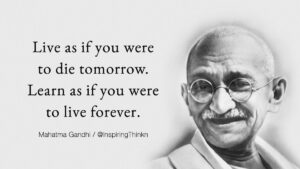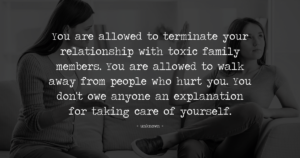Last week, we covered how one’s relationship with self acceptance affects their overall wellbeing. This week, I am going to share with you what drives self acceptance and a couple of exercises you can do to get yourself started on your pathway to Bliss-ville 😂
What drives our ability to accept ourselves?

Some people are born with a higher level of self-acceptance than others. Have you ever considered why this is the case? It’s because our childhood experiences have an impact on our adult self-acceptance. Our parents or caregivers are the first to teach us what is and isn’t acceptable about ourselves.
We learn as children to accept only those aspects of ourselves that they deem acceptable. We reject, suppress, and try to hide the parts of ourselves that we think are wrong. However, the problem is that these decisions are made at random. They are determined by your parents’ or caregivers’ values and priorities.
Different emotions, for example, are acceptable in different families. If you grew up in a family where anger was frowned upon, you may find it difficult to accept the parts of yourself that experience rage or anger..
If your parents were harsh or demanding, your inner critic will most likely be loud, and you may have a fear of failure. Those who have more compassionate parents, on the other hand, are more compassionate toward themselves. As a result, people with critical parents are more likely to struggle with self-acceptance. People with more positive and affirming parents are more likely to have higher self-acceptance.
This quote from Gandhiji inspires me everyday to do better;
Live as if you were to die tomorrow.
Learn as if you were to live forever.

So even if you don’t take my words seriously, Gandhi kind of knew what he needed to do to achieve a blissful mind space.
With all these being said, let’s jump into mind exercises that will help to train our mind to be more disciplined on this important journey for yourself. True self-acceptance does not occur overnight. Over time, daily practice and self-care can help you gradually increase your level of self-acceptance.
1.Practice GRATITUDE!

An underrated practice that is often dismissed by us because it requires us to be still and present. But a very rewarding one if you decide to try it. Write down three to five things you’re grateful for every day. This may appear difficult at first, especially if you have a mental habit of focusing on the negative.
However, practicing gratitude on a daily basis can help you retrain your brain to focus on the positive. Look for the silver linings in every ostensibly bad situation. Be thankful for the lessons you learned if you failed at something. Look for things to be grateful for in your perceived flaws as well.
2. Reframe your negative beliefs, AKA, Goodbye Self Deprecating Jokes!

Self Deprecating jokes were my favourite unaware behavior and now with a full blown spiritual awakening, i have managed to say goodbye for the most parts. I used to wonder, why would people even laugh at these so called jokes when it was most definitely a cry for help. As I do the work everyday, it has come to my attention that the root of these “jokes” came from my negative beliefs about myself. Negative beliefs are the inner critic’s voice. They cause a great deal of pain and prevent you from achieving unconditional self-acceptance.
By writing down your negative self-perceptions, you can reframe them. Write it down, for example, if you believe you are a bad person because of something you did in the past.After you’ve made your list, go over each belief and reframe it. Begin by questioning each statement, asking yourself, “Is this true?” Then, for each statement, replace it with more positive self-talk. “I am a good person, but I am only human, and I occasionally make mistakes,” for example.
3.Curate your environment wisely
You are your environment. It is a harsh fact of life but once accepted, it helps you to build the life you have always wanted for yourself. Your needs are completely unique to you and does not ever need any justification to ANYONE! Make a list of the people with whom you spend the most time. Consider how they speak to you: are they mostly positive or negative?

Identify those who are mostly negative and consider whether it is possible to spend less time with them. You might even be able to completely remove them from your life. Here is an opinion that would get a lot of hate but like what Zayn says, nothing but truth with leave my mouth; so here it goes,
You can say goodbye to your toxic family members; friends of many years or just any person who isn’t healthy for you. There it is. That being said, these people are on their journey and judging them wont ease yours. Letting them go is like the beginning of a tower construction. Laying the foundations of what constitutes a healthy environment is the first step. Following that, you will soon start to surround yourself with people who appreciate and support you.
My last exercise for you will be the most difficult one. It is something that ALL of us as humans struggle. Here is it goes;
4. FORGIVING YOURSELF!💕

I grew up not knowing that being harsh on oneself is not a form of self love. In fact,from where I am from, it was encouraged. According to my caregivers, it displayed “strength”; but today I am here to tell you that romanticizing this idea has single handedly put my innocent body in harmful situations. What worsen this was, I was unable to forgive myself for following this idea that seems stupid once I WOKE UP.
I did not understand why was I harsh on myself for following something that was modeled as healthy my whole life. There it was again, creeping up on me. Mind of mine 😒 I knew the only way to move past this was to forgive myself for following it. The forgiveness i give myself is consciously unlearning these toxic patterns.
So, to overcome past mistakes, try this self-forgiveness exercise. It will remind you that you are only human and that you did your best. This will assist you in letting go of regret and moving on.
Consider a situation, action, or blunder for which you wish to be forgiven. Write down any judgments you have about yourself in relation to that situation.
For instance, you could write, “I should not have done X.” “I’m such a moron.”
Then, forgive yourself for holding that belief. “I forgive myself for thinking I’m stupid for that,” write down. “The truth is…” and then fill in the blanks. Consider what a caring friend might say to you. “I was stressed because…” or “I was hurting and made a bad decision,” for example.
Treat yourself like how you treat your best friend because that who you are to yourself
Accepting yourself means stepping into your power. When you cultivate self-acceptance, you no longer need to seek validation from others. You gain confidence in yourself and learn to accept both your strengths and weaknesses.
Let me know what other exercises or practices have empowered you in the comment box below. Sharing is caring 💕
Follow us on Instagram, Facebook or Telegram for more updates and breaking news.








